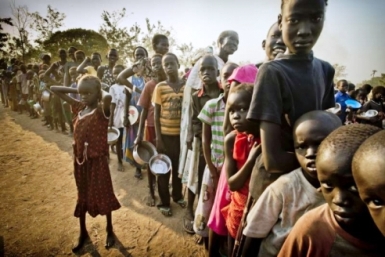UNICEF appeals for $3m to respond to Wau crisis
July 2, 2016 (JUBA) –The United Nation’s Children Funds (UNICEF) said it needs upto $3 million to respond to the recent crisis in South Sudan’s town of Wau where it intends to immunize 13,000 children against measles.

“UNICEF’s funding requirement for the Wau response is US$ 3 million of which just half is available,” it added.
Over 40 people, most of them civilians, were killed in last week’s fighting in Wau town with the South Sudanese government blaming the attack on “criminals and bandits”.
Thousands of civilians fled Wau town and others have taken refuge at the UN compound.
UNICEF said its three-day campaign is focused on children aged six months to 14 years, “who have been living in makeshift settlements in the city since the conflict erupted last Friday.”
“In such overcrowded sites, health risks for communities increase considerably,” it added.
“Measles spreads rapidly and one case can very quickly become an outbreak,” said the UNICEF’s Representative in South Sudan, Mahimbo Mdoe.
“It’s crucial that children living in these crowded conditions are protected from what can be a life-threatening disease,” Mdoe added.
UNICEF is one of the UN agencies working in the displacement sites to reunite children who were separated from their families while running from the fighting. Children are being provided with primary health care and treatment for malnutrition.
Safe water supplies and latrines have also been installed to minimize the spread of disease, while child-friendly spaces have been created so that even in the midst of upheaval children are able to play and learn.
In addition to the support in Wau, teams from UNICEF and partner agencies on Friday reached the remote village of Mboro, to the south, which until recently had been inaccessible due to insecurity. More than two thousand people were given access to health care and 500 children were screened for malnutrition. Those diagnosed as malnourished were provided with therapeutic food supplements.
Residents said they were living in the bush without shelter for fear of further violence. They also said they were surviving on whatever food they could forage.
Given the high insecurity in Wau, UNICEF said it was particularly concerned about the well-being of displaced women and girls in and around the temporary sites. Conflict and population movements traditionally hit women and girls the hardest, as they become exposed to sexual violence and exploitation.
“When conflict and violence hit communities and people are forced to flee, support networks become weaker and the first to feel the impact are the most vulnerable,” said Mdoe. ”UNICEF is working around the clock with partners on the ground to ensure that medical and support services are available and that safe spaces are created so that women and girls can speak freely and seek help if they need it.”
(ST)
